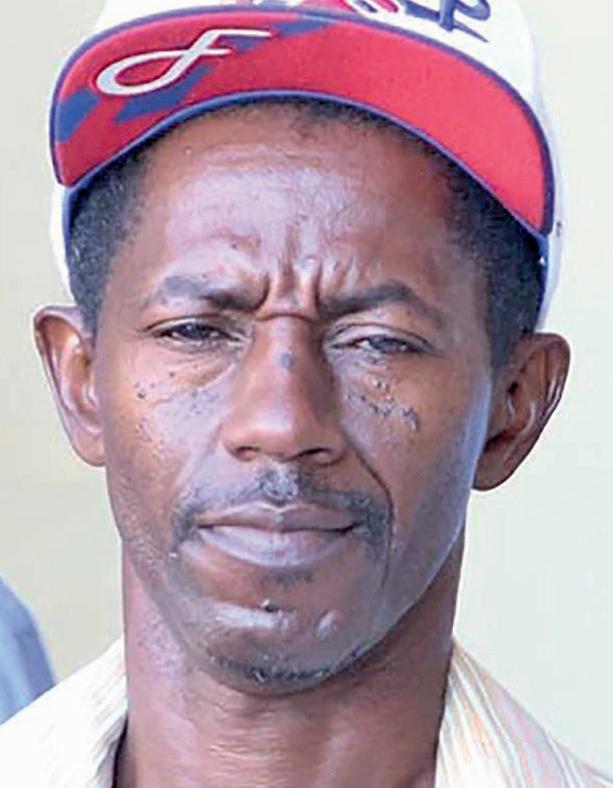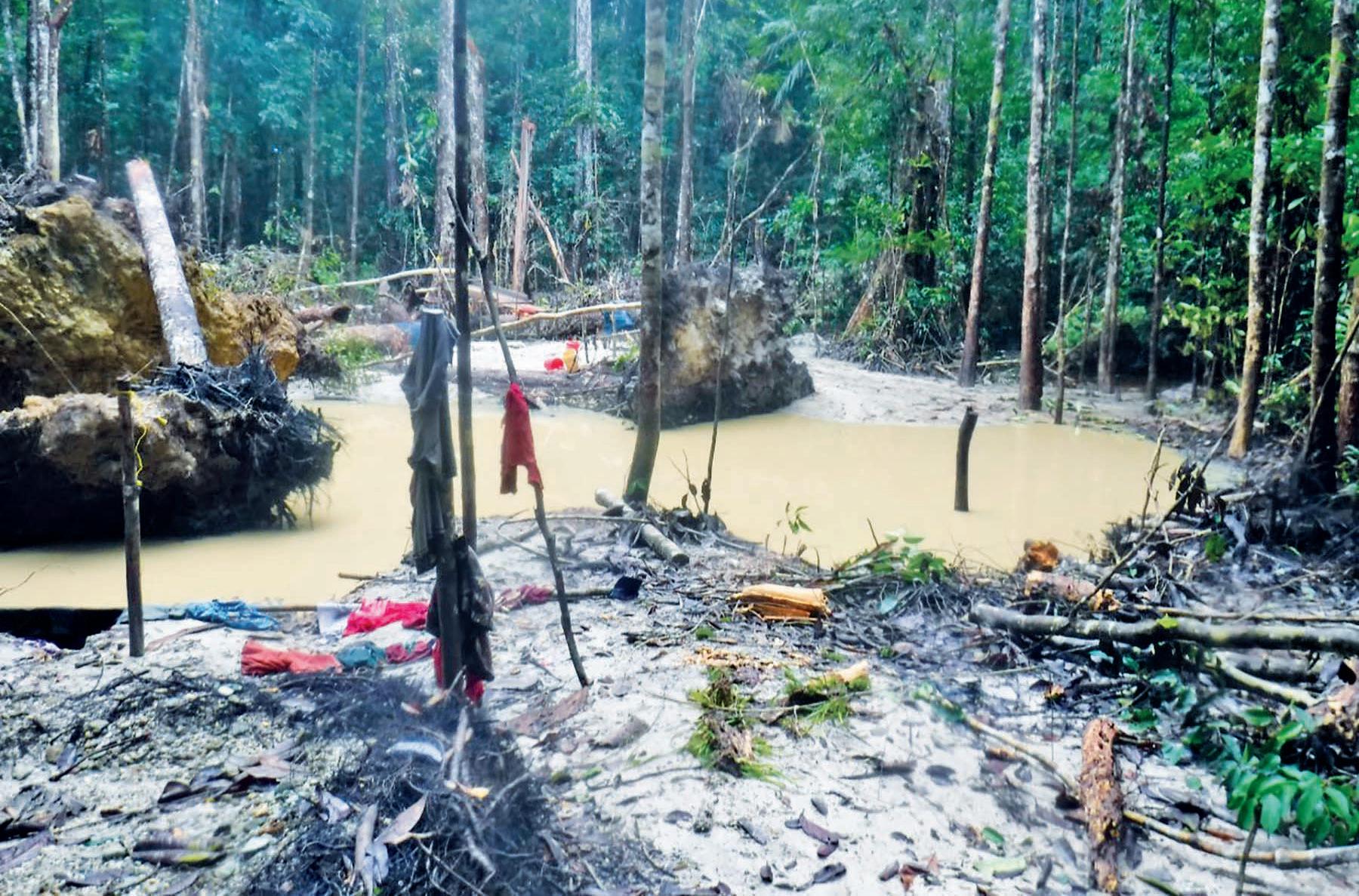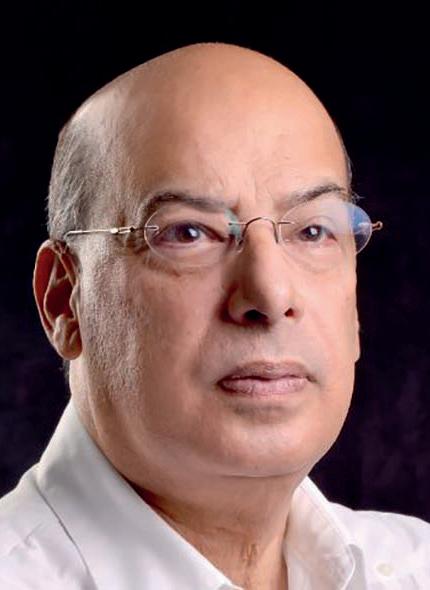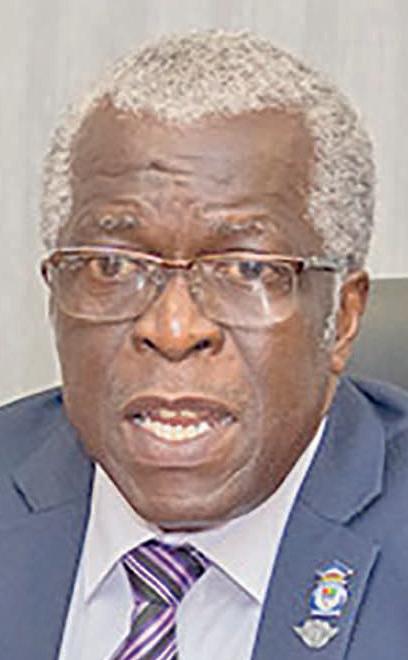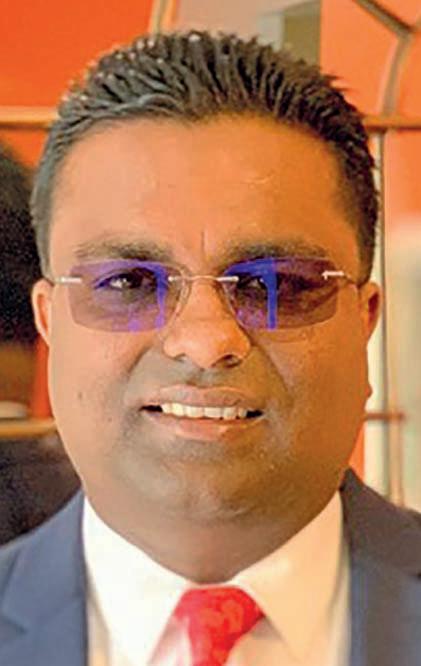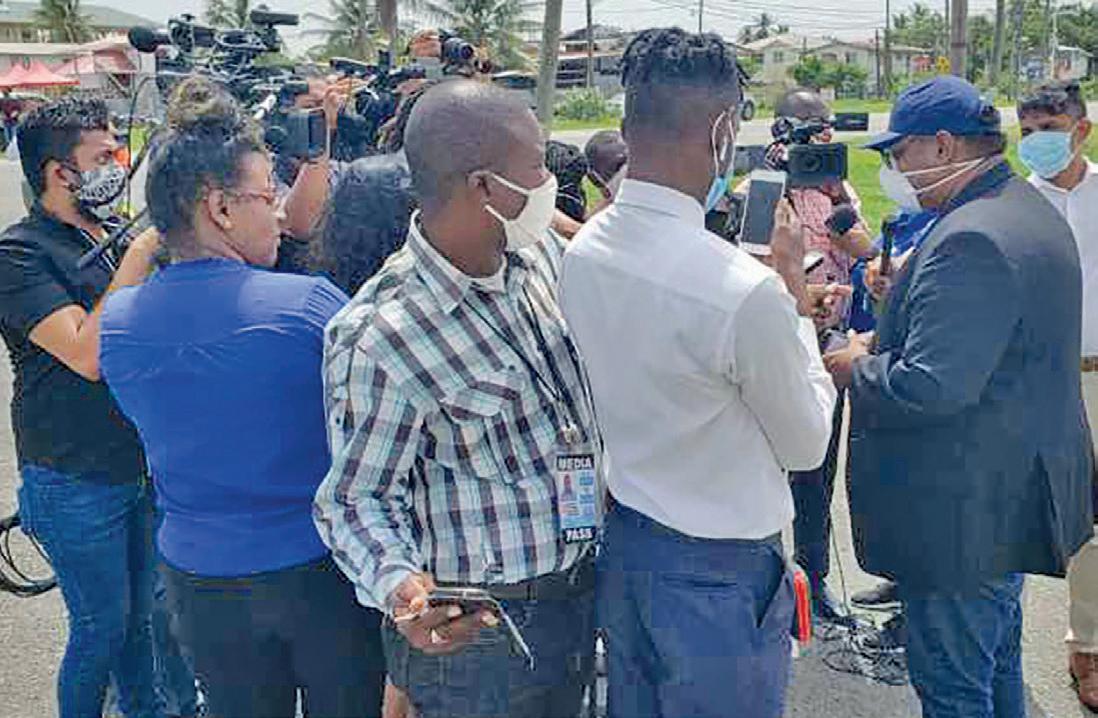12 NEWS
FRIDAY, MAY 15, 2020 | GUYANATIMESGY.COM
Attacking Golding does not change demand for credible Guyana elections result By Sir Ronald Sanders
I
n the wake of a report to the Permanent Council of the Organisation of American States (OAS) on the Guyana general elections of March 2, the Head of the Electoral Mission (EOM), former Jamaica Prime Minister Bruce Golding, has been accused of being “exceptionally partisan” and “hostile to the nation and people of Guyana”. Surprisingly, this accusation has been made by Joseph Harmon, a senior official of the APNU-AFC alliance, and a senior member of the caretaker Government in Guyana. I say “surprisingly” because Harmon should know that the Office of the President, of which he was – and is – an integral part; and the Ministry of Foreign Affairs, officially advised the OAS Secretariat that there was “no objection” to Golding leading the OAS EOM for the elections. This “no objection” came after Golding, in full disclosure and transparency, informed the OAS Secretariat, when approached to lead the team, that he had been, at one time, a guest in the home of Opposition Leader and former President of Guyana, Bharrat Jagdeo. So, this matter was openly disclosed, and the Guyana Government registered that it had no objection. For general knowledge, it is worth recording that the OAS carries out an extensive search
in its appointment of members of EOMs, particularly the persons to lead such missions. Golding was approached to lead the mission to Guyana based on his authority as a former CARICOM head of government, and his knowledge and experience of general elections in the Caribbean. Members of the team were 17 seasoned experts and observers of general elections coming from 13 countries. Therefore, when Golding presented an “Update on the Electoral Process in Guyana” to the OAS Permanent Council on May 13, he did so with the full backing of the team that had spent 16 days observing the runup to the elections, polling day on March 2, and the subsequent debacle that started on March 5; when, unlike nine of the ten regions that had proceeded in accordance with electoral law, the final tabulation of Region 4 was questioned by all the Observer Missions – not only the OAS, but also the missions from the Carter Center, the European Union, Caricom, and the Commonwealth. The latter mission was led by another former prime minister and senior Caribbean statesman, Owen Arthur of Barbados. Arthur was an eyewitness to the actual elections and its aftermath, and he and his team have meticulous records on which he will obviously draw when he makes his public statement. He is not expected to be any less critical of events sur-
Sir Ronald Sanders
rounding the tabulation of Region 4 than was Golding, whose remarks at the OAS meeting: that he “had never seen a more transparent effort to alter the result of an election”, and that “It takes an extraordinarily courageous mind to present fictitious numbers when such a sturdy paper trail exists”, are a serious condemnation of the officials of the Guyana Electoral Commission. It is significant that all the Observer missions, including the OAS, highly commended the “conduct of a credible process” on election day. The problem was not the voting; it was the tabulation of votes in Region 4, where the statement of poll by the returning officer varied greatly from the statement of poll which all the political
parties had in their possession, since their agents were present for the counting of each vote. In this regard, the point made in a joint statement by the Caricom Group, at the same OAS meeting at which Golding presented his update, is significant. “If each of the political parties genuinely believes it has won, then they should have no fear of the current recount, and they should all support it”. A credible and transparent recount of the votes over which representatives of Caricom are scrutineers, and the peaceful acceptance of the results by all parties, are crucial to Guyana’s future. If the recount is upended under any pretext, and the Caricom scrutineers cannot pronounce it transparent and credible, the swearing in of any government would be regarded as illegal, with grave consequences particularly for persons involved. Guyana itself, instead of proceeding on a path of progress, would be mired in international odium, halting the economic growth and social improvement to which its people have been looking forward. The international community is giving Caricom an opportunity to help Guyana out of this morass. In its joint statement at the OAS meeting, Caricom stated it has “no interest in which political party wins the election; Caricom’s interest is that, at the end of the recounting process, democracy must
be the winner”. The global community has taken Caricom at its word, as expressed at the OAS meeting: that, “If democracy fails in any Caricom country, it fails in the larger Community. As an institution, Caricom cannot allow this to happen in any member state”. Significantly, OAS SecretaryGeneral Luis Almagro declared that the OAS is content “at this stage” to support Caricom’s efforts. Caricom’s engagement, by the invitation of Guyana’s President and Opposition Leader, with the agreement of GECOM, is to scrutinise the recount of the votes “in an effort to see a transparent and credible result, and a legitimate Government elected at its end”. It is in the interest of all the political parties and other actors in Guyana to help themselves by ensuring that Caricom carries out its task successfully. For, if Caricom is seen to fail, then others will take its place. As the US Ambassador in Guyana recently had to point out, not that the US wishes it, but there could be “serious consequences if the democratic process, the rule of law and the principles of democracy, are not followed in Guyana”. The US is not likely to be alone in actions that would have to be taken by regional and international governments. (CNG Media)
GECOM’s failure to address attempts at electoral fraud led to Mingo fiasco – Gunraj
Chief Elections Officer Keith Lowenfield
I
t was the failure of the Guyana Elections Commission (GECOM) to deal with issues of electoral fraud in a uniformed way that has caused the system to be circumstanced in such a way that enables persons “to try these things over and over again.” This was the damning revelation made by Peoples Progressive Party (PPP) GECOM Commissioner Sase Gunraj when, on Thursday, he was asked to respond to the claims of fictious results being presented by a GECOM officer in order to alter the results of the March 2 poll.
The scathing criticism of the GECOM Returning Officer was given a day earlier by Head of the Organisation of American States’ Electoral Observer Mission, Bruce Golding. According to Gunraj, over the years, GECOM “abjectly failed to deal with those issues in a condign manner.” He was at the time pointing to the recent allegations of previous attempts in earlier elections juxtaposed with the Commission’s response. Speaking specifically to the issue of fake statements of poll that had made their way into the tabulation centre during the 2015 elections, the GECOM Commissioner recalled that, ever since then, he would have demanded to see the SOPs in the possession of Chief Elections Officer Keith Lowenfield. He told media operatives that GECOM, while being a democratic organization, has failed under successive chairpersons to address the issues. Gunraj was at the time referring to former Chairpersons Dr Steven Surujbally and retired Justice James Patterson. According to Gunraj, it was Surujbally who voted against the release of the SOPs at that time, and Justice Patterson had dealt with the matter relative to proxy votes raised during a local government election. Gunraj told reporters that
Returning Officer Clairmont Mingo
there had been an investigation, and that Justice (rtd) Patterson had ruled that it was a non-issue. Gunraj noted, too, that the issues of the fake SOPs are in fact central to an election petition that had been filed; and he said that five years later, this matter is still to be concluded. According to Gunraj, however, “While I do not reject the idea that GECOM is without blame, and perhaps is very blameworthy in the diligent prosecution of that issue, perhaps the court, which is charged with responsibility of dealing with that, also should take some blame.”
He again pointed to the fiveyear time span that has elapsed since that petition was filed, and he said the issues have still not been ventilated. Gunraj noted, additionally, that the onus to address issues related to electoral fraud and attempts at electoral fraud do not rest entirely with the court, but “if the majority of the Commission refused to deal with it, unfortunately, my hands are tied”. The GECOM Commissioner told reporters the electoral institution “is supposed to be a democratic body, and in a democratic situation, majority rules; and I am bound by the decision of the majority.” Addressing the charges made by Golding specifically, Gunraj told reporters, “Mr Golding said something that I believe many of us were thinking: that this was a most transparent attempt at a rig of an election…we all saw it.” According to Gunraj, “Prime Minister Golding has not said anything that is different or earthshattering outside of what we all observed; he and his team, like any one of us, would have all observed that as well.” Speaking to the National Recount exercise underway, Gunraj told representatives of the media, “Up to now, with 350 odd boxes concluded, there has been no marked changes, except in the box-
Former GECOM Chairman, Retired Justice James Patterson
es in Region Four, where Mingo did his ‘bingo’. There has been no marked change in the contents of the SORs and the SOPS.” According to Gunraj, with the exception of some cosmetic changes, taking into account instances such as where rejected votes were found to be accepted in the recount, the only marked changes in the SORs relate to Mingo’s figures. He reminded that the SOPs are in fact public documents posted at 2,339 polling stations, and are required to be posted in a conspicuous place outside of the polling stations.

